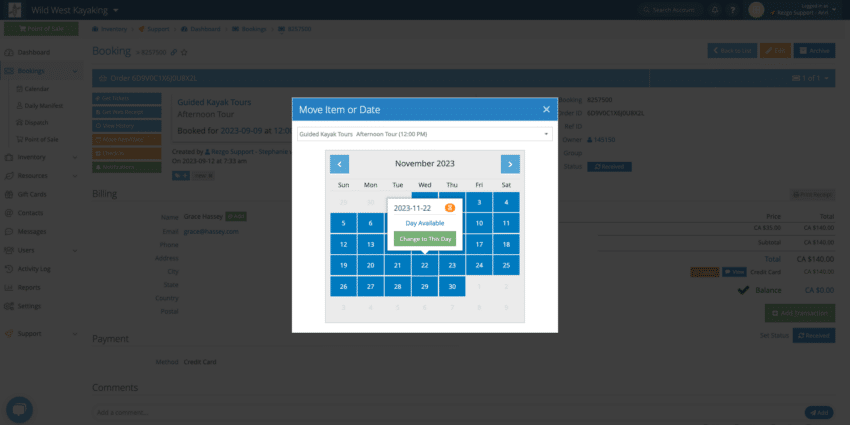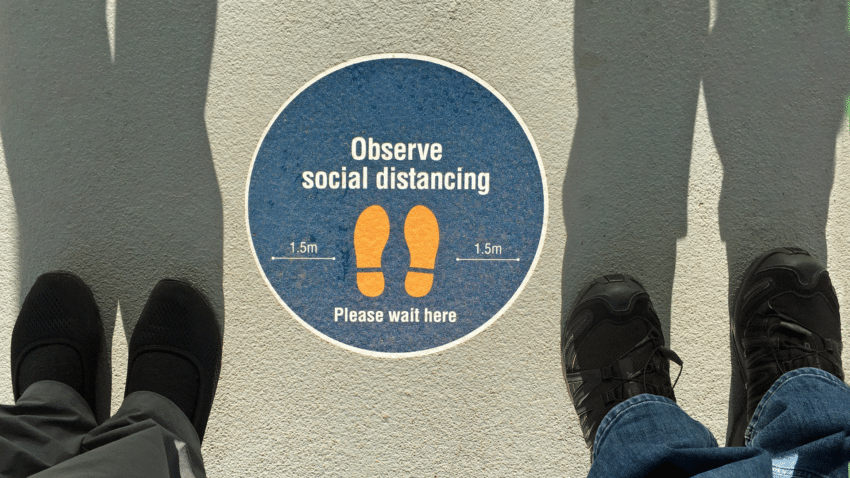Table of Contents
Back-to-school season is filled with new notebooks, fresh pens, and excitement for the new chapter ahead. But there’s one more thing this time of year brings: concerns about flu season.

For tour and activity operators, flu season can trigger flashbacks to 2020 when tourism ground to a halt worldwide.
There’s no evidence we’ll be plunging back into lockdowns any time soon. But 2023’s flu season may pose some challenges to tourism businesses as guests and staff get sick and travellers get wary of making bookings.
Below, we’ll dive into what experts expect from the 2023 flu season and how tourism businesses can protect themselves and their customers.
Should Tour and Activity Operators Be Worried About 2023’s Flu Season?
We now have a triple threat of respiratory diseases to be aware of: influenza, respiratory syncytial virus (RSV), and COVID-19.
No one can predict the future, but many are worried about a “tripledemic” this flu season. Cases of all three are likely to rise in the fall and winter as people spend more time indoors and in close proximity.
The New COVID Variant
You might have seen the news stories. A new coronavirus variant — known as BA.2.86 or “Pirola” — has been detected in several countries, including Canada, the U.S., the U.K., and Denmark.

But before you panic, it may not be as bad as it sounds.
According to the U.S. Centers for Disease Control and Prevention (CDC), the Pirola variant doesn’t appear to be driving increases in infections or hospitalizations in the U.S. This year’s vaccines are expected to provide protection against the new variant and there’s more immunity to COVID-19 in general from vaccinations and previous infections.
In May 2023, before this variant came along, the World Health Organization declared that COVID-19 was no longer a “public health emergency.” Instead, it’s now an “established and ongoing health issue.”
What About Flu and RSV?
As for the other two respiratory diseases to watch out for, experts often look to the Southern Hemisphere’s flu season to predict what’s to come in the Northern Hemisphere. Australia saw a bad flu season this year, but it wasn’t as bad as its 2022 season.
So, up north, experts predict 2023’s flu season won’t be any worse than usual, and RSV could return to normal patterns after a particularly bad season last year.

The CDC predicts hospitalizations in 2023 from all three respiratory diseases will be similar to 2022, and in the U.S., vaccines for all three will be available.
One thing to note? Australia had an earlier-than-usual spike in cases. So the Northern Hemisphere’s flu season may happen earlier than usual in 2023, just as it did in 2022. Cases may spike in November, instead of January and February.
For tour and activity operators, this could be a good thing. November might be in your shoulder season, meaning the upcoming flu season could have less of an impact on your bottom line than you’d think.
The Final Verdict
Overall, if you survived 2020 — or even 2022’s flu season — there’s no evidence 2023 will be a bigger challenge.
There probably won’t be lockdowns or travel regulations, and we’re very unlikely to see the global shutdown of travel again.
Travelers are more used to the threat of illness now having lived through the pandemic, and they’re less willing to put their travel plans aside. They may want to make up for lost travel time and be more eager to get out there than before.
What Can Tour and Activity Businesses Do to Protect Themselves in Flu Season?
Whether your business survived the initial COVID-19 wave or you’re a new operator facing your first flu season, here’s what you can do to keep the bookings rolling in.
Offer Gift Cards
Travelers may be worried about committing to a booking during flu season, so gift cards offer some flexibility. Customers can buy now and book at a later date, and you still make the sale.

You could also offer gift cards at a discount to get an injection of cash into your business.
Another option is to offer refunds to a gift card if a customer needs to cancel their booking. The customer doesn’t lose their money and can book again later, and your bottom line isn’t impacted by the cancellation. Just make sure your cancellation policy lays this out clearly.
Make it Easy to Change the Date of a Booking
Again, travelers may be wary about committing to a booking when flu season picks up. To entice them into making a booking, offer the flexibility to be able to change the date if needed.

You can also offer to change a booking’s date if a customer asks to cancel their booking due to illness or an uptick in COVID cases in your area.
Offer Optional Trip Insurance
Travelers are much more worried about booking a trip and not being able to go, either because of illness or travel restrictions. Offering optional trip insurance can give them peace of mind and encourage more bookings.
With refund protection, guests can buy ticket protection for an additional fee when making a booking in Rezgo. If they can’t make the date, guests can apply for a refund with the insurance servicer.
This means you don’t need to offer refunds for no-shows or cancellations due to reasons out of your control, keeping the cash in your business.
What Can Tour and Activity Businesses Do to Protect Their Staff and Customers in Flu Season?
There are a few ways you can reduce the spread of infection in your business. This will not only protect you and your staff — leading to fewer sick days — it’ll soothe worried guests.
Clean, Clean, Clean
Make sure shared surfaces and high-touch areas are sanitized regularly — think door handles, your check-in desk, shared sports equipment, tablets, and the PIN pads on your terminals. Encourage staff to wash their hands, surfaces, and equipment regularly.

Having hand sanitizer available for guests and staff is an easy low-cost method to reduce virus transmission.
To build trust with potential guests, consider highlighting what you’re doing to keep customers and staff safe during flu season on your website or social media pages.
Encourage Social Distancing
Even if there are no official regulations in place, you can reduce the chance of illnesses spreading on your watch by introducing a few subtle social distancing measures.

Consider limiting the number of people in your check-in space or staggering start times to keep tour groups separate.
You don’t need to go overboard — even just increasing air circulation in any indoor spaces you work in can help. A few simple steps can make guests feel more at ease and cut down the risk of virus transmissions.
You can also move to smaller groups on your tour or activity offerings. Guests may be put off by large group sizes or want to book private tours among friends and family, rather than mingling with strangers. Depending on your business, self-guided tours could also prove popular.
You can adjust the capacity and pricing of an offering in Rezgo, either as a one-off adjustment or a long-term rule. This can come in useful if you want to trim down group sizes while flu cases are high, for example.
Offer Paid Sick Leave
The last thing guests want to see is their tour guide coughing or sniffling. That’s true at any time of year, but especially during flu season when people are more cautious about getting sick. To make matters worse, one sick team member can infect others, so it’s even more important staff members stay at home when symptoms pop up.

If possible, offer paid sick leave to ensure staff can stay at home and foster a work culture where people feel comfortable taking time off when sick.
You could also encourage staff to get a flu shot early in the season and stay up-to-date on their COVID-19 boosters.
Closing Thoughts
Tourism businesses can take what they’ve learned during the pandemic — or what they’ve learned from other businesses — and apply these lessons to this year’s flu season.
While there’s no indication the 2023 flu season is going to be any worse than last year, it can still present challenges as customers get ill and cancel or become cautious of making bookings in the first place.
Guests will be looking for cleanliness, cancellation options, and flexibility. As a tour or activity business, you can increase your cleaning, lower your group sizes, and offer trip insurance and booking date changes to attract more customers and ensure the sales continue to roll in.





